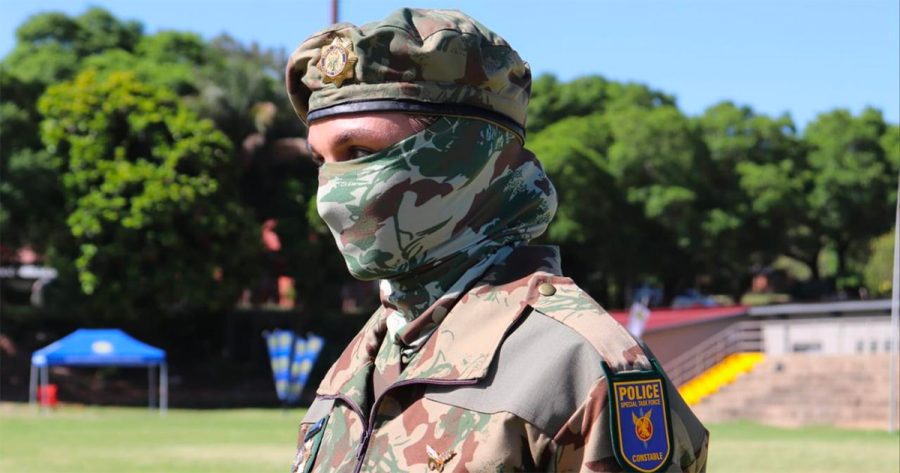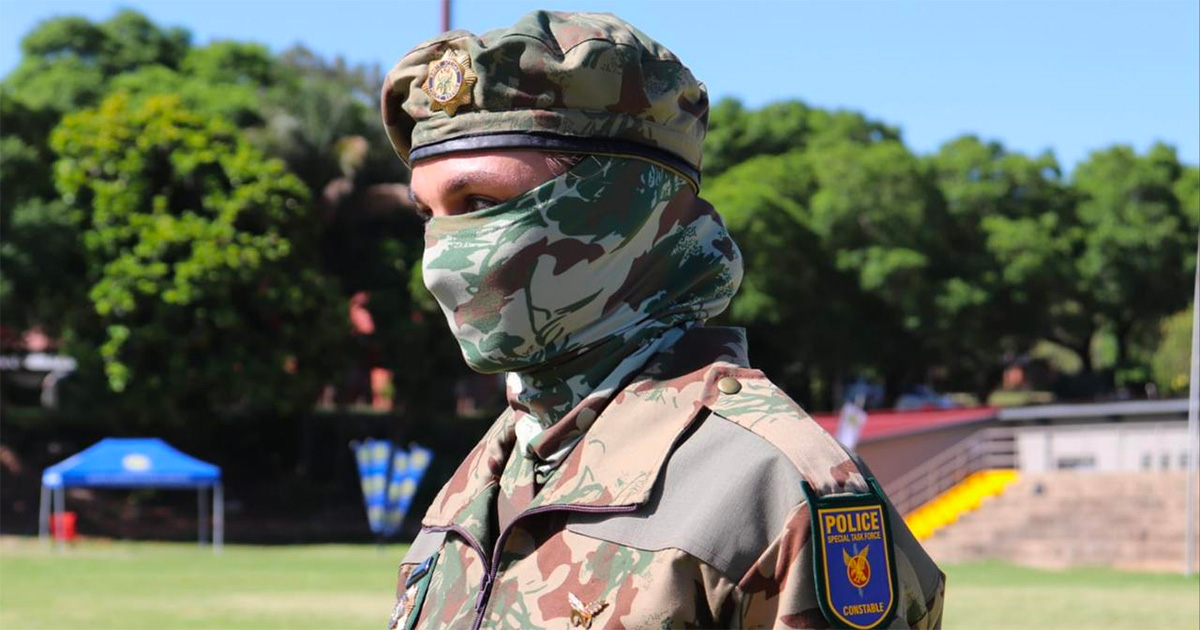
SAPS Congratulates First Woman to Complete Special Task Force Programme
A 31-year-old female Constable has become the first woman in South Africa to complete the SA Police Service (SAPS) Special Task Force (STF) Selection Training Programme in the history of the organisation. While SAPS can’t name the constable for security reasons, they said she has 11 years’ service and is regarded as “the only female […]

A 31-year-old female Constable has become the first woman in South Africa to complete the SA Police Service (SAPS) Special Task Force (STF) Selection Training Programme in the history of the organisation.
While SAPS can’t name the constable for security reasons, they said she has 11 years’ service and is regarded as “the only female police officer to have successfully completed the STF training programme without any amendments to the training to suite females.”
She is also the only female police officer that is currently serving in the Special Task Force unit as an operational member.
The female constable – who is from the Western Cape – says this momentous achievement must be a motivation for other women to continue to break barriers in male-dominated environments. Speaking as the only female member attached to the STF, she said today:
“If you really want something you must do everything to obtain it. I wanted to be part of the best, either the best or nothing. If I can do it, other women can and will be able to do it.”
Today she formed part of a platoon with 10 male police officers who were bestowed with their STF parachute wings by the National Commissioner of the SAPS, General Fannie Masemola.

The Special Task Force Parachute Wings are awarded to those members who have undergone and completed the Special Task Force Selection Training Programme.
The STF Parachute wings are worn on the left chest and signifies that the recipient has been trained to a high level of skill in weapon proficiency, advanced para-military rural tactics, advanced tactical policing for high-risk incidents, hostage release tactics in a variety of high-risk incidents as well as the ability to deploy operationally by parachute into rural environments.

Also standing on parade were an additional 10 STF members who were bestowed with their Operators Badge after undergoing a two-year probation period during which they were already serving as members of the elite unit.

The Special Task Force is the only paramilitary unit in the SAPS and falls under the Specialised Operations Component which is led by a female commander, Major General Nonhlanhla Zulu. Together with other units and components, they report to the organisation’s first female Deputy National Commissioner, Lieutenant General Tebello Mosikili.
General Masemola says the organisation will continue to empower and recognise women.
“Out of 906 applications to join this elite unit, 589 applicants qualified for provisional selection. Ultimately, only 93 applicants reported for selection of which only 11 successfully completed the STF Basic Training programme,” said General Masemola.
“Suffice to say, the 11 successful candidates, together with currently serving 10 STF members, have done the organisation proud. All members on parade have shown dedication and commitment to their profession. The STF selection criteria is very stringent and those who are selected, must prove their mettle throughout their intensive and rigorous training.”
The Special Task Force Unit was established in 1976. Its mandate includes responding and providing operational support only to high risk incidents which include terrorism and hostage related incidents, rescue missions amongst a host of other high risk matters, SAPS said in a statement today.
